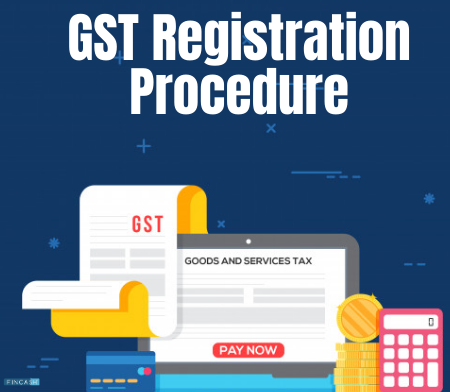The Ultimate Overview to Simplifying the GST Registration Process and Requirements for Local Business Owners

Understanding GST Basics
To comprehend the basics of the Product and Services Tax Obligation (GST) system, little company owners must first comprehend its underlying ramifications and principles. Under the GST regime, organizations are called for to gather and register tax on part of the federal government, making certain openness and conformity.
Among the crucial concepts of GST is input tax obligation credit, which permits companies to claim credit history for tax obligations paid on their acquisitions. This mechanism prevents the plunging impact of taxes and advertises effectiveness in the tax obligation system. Furthermore, GST is a destination-based tax, suggesting that the tax is imposed at the point of consumption instead of the factor of origin. This ensures reasonable distribution of tax obligation profits amongst states based upon where the solutions or goods are eaten. Comprehending these standard principles is critical for small company owners to navigate the complexities of the GST system and ensure compliance with the regulation.
Eligibility Criteria for Registration
Having actually developed a foundational understanding of GST principles, local business proprietors need to currently satisfy certain eligibility requirements to wage the enrollment procedure. In India, entities participated in the supply of goods or services with an annual aggregate turnover surpassing Rs. 40 lakhs (Rs. 10 lakhs for unique classification states) are required to register for GST. Additionally, certain companies such as those involved in inter-state supply of goods, casual taxed persons, and those called for to pay tax obligation under the reverse fee system need to register for GST irrespective of their turn over. Businesses that were signed up under the previous tax obligation program (VAT, service tax obligation, and so on) are likewise mandated to sign up under GST. Farming organizations that just supply create out of key manufacturing are excluded from GST registration. It is vital for local business owner to carefully evaluate their qualification based upon these criteria to guarantee compliance with the law and avoid any charges for non-compliance.
Papers Needed for GST Registration

Simplified Enrollment Process Steps
Adhering to the collection and verification of the requisite files, the registration process for GST can be browsed through a series of streamlined actions created to promote efficient compliance for little organization proprietors. Upon successful confirmation, an Application Referral Number (ARN) is issued, showing the conclusion of the GST registration procedure. By complying with these simplified actions, tiny business owners can properly register for GST and make certain conformity with tax policies.
Tips for Ensuring Conformity
To keep regulatory adherence and functional integrity, thorough oversight and aggressive steps are crucial in ensuring compliance with GST requirements for local business proprietors. Small organization proprietors need to stay upgraded with GST guidelines, filing deadlines, and any adjustments in tax rates to stay clear of charges and maintain an excellent standing with tax authorities. One vital suggestion for compliance is to maintain thorough and precise records of all purchases, consisting of invoices, billings, and costs associated with GST. Consistently integrating monetary records with GST returns can help in identifying and rectifying any disparities immediately. Additionally, performing regular interior audits or seeking professional help can make sure that business is following all GST click to read regulations appropriately. It is additionally critical for local business proprietors to buy GST-compliant accountancy software application that can enhance the tax filing procedure and minimize mistakes. Last but not least, participating in GST understanding workshops or training programs can enhance understanding and compliance with GST policies, ultimately profiting business over time.
Final Thought
Finally, local business proprietors should understand the basics of GST, meet the qualification standards, collect necessary papers, and follow the streamlined enrollment procedure actions to ensure compliance. By streamlining the GST enrollment procedure and requirements, local business proprietors can prevent penalties and operate their companies smoothly within the lawful framework - Singapore GST Registration. It is essential for local business owners to remain educated and compliant with GST laws to preserve a successful organization procedure
Small organization owners looking for GST registration have to ensure they collect and submit the essential papers to complete the enrollment procedure effectively. The documents needed for GST enrollment commonly include evidence of business enrollment or incorporation, FRYING PAN (Permanent Account Number) card of the service address, entity and identification evidence of the promoters/partners/directors, photographs, address evidence of the place of service, financial institution account statements or terminated cheques, and authorization types. Going to GST recognition workshops or training programs can improve understanding and compliance with GST guidelines, eventually profiting the organization in the lengthy run.
By simplifying the GST registration procedure and demands, little business proprietors can prevent penalties and operate their companies efficiently within the lawful framework. It is vital for little organization proprietors to stay compliant and enlightened with GST policies to maintain an effective company procedure.